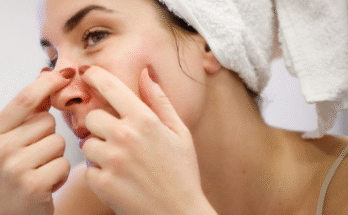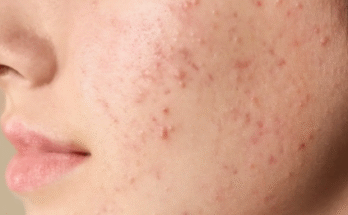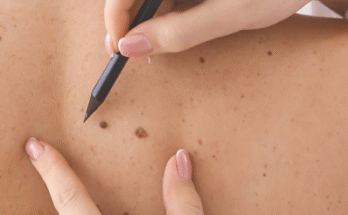We’ve all heard that a good night’s sleep can do wonders for our mood and energy levels, but did you know it also plays a major role in the health of your skin? For anyone dealing with acne, sleep might be one of the most underrated skincare tools out there.
Understanding how rest affects your skin’s balance can help you take simple, effective steps toward a clearer, calmer complexion.
The Science Behind Sleep and Skin Health
When you sleep, your body doesn’t just rest—it repairs, restores, and regenerates.
During deep sleep, blood flow to the skin increases, allowing your body to rebuild collagen, repair damage from UV exposure, and reduce inflammation. This is essential for overall skin health. If you’re not getting enough sleep, these repair processes are interrupted, leaving your skin more vulnerable to irritation, clogged pores, and breakouts.
Sleep deprivation also disrupts the balance of certain hormones in your body, particularly cortisol, often referred to as the “stress hormone.” High levels of cortisol can trigger inflammation and increase oil production in the skin. More oil means a higher chance of pores becoming clogged, which can lead to pimples and acne flare-ups.
Cortisol and Its Role in Breakouts
Let’s take a closer look at cortisol because it’s one of the key links between lack of sleep and acne. When you’re sleep-deprived, your body perceives it as a form of stress. In response, it releases more cortisol to help you stay alert and manage that stress. While this hormone can be helpful in short bursts, consistently elevated cortisol levels can lead to inflammation throughout the body—including the skin.
Inflamed skin is more prone to irritation and sensitivity, which can make existing acne worse. Cortisol can also interfere with the natural healing process, meaning that blemishes might take longer to fade. Over time, this can create a cycle where poor sleep causes stress, stress causes acne, and acne causes more stress, making it difficult for your skin to fully recover.
How Sleep Quality Affects Skin Barrier Function
Another important connection between sleep and acne is the skin barrier. The skin barrier acts as your body’s frontline defense against environmental irritants, bacteria, and moisture loss. When you’re well-rested, your skin barrier stays strong and hydrated. However, when you don’t sleep enough, your skin’s ability to retain moisture and protect itself decreases. This makes it easier for bacteria and dirt to penetrate the pores, leading to more frequent breakouts.
A weakened skin barrier can also make acne treatments feel harsher or less effective. Some people may notice more redness, flaking, or dryness after using acne-fighting ingredients like salicylic acid or benzoyl peroxide if they’re not getting sufficient rest.
The Role of Melatonin in Skin Repair
Melatonin, the hormone that helps regulate your sleep-wake cycle, is another important player in skin health. Aside from helping you fall asleep, melatonin is a powerful antioxidant that helps protect your skin from damage caused by free radicals—unstable molecules that can accelerate aging and inflammation. When you get enough sleep, melatonin levels stay balanced, helping your skin recover from daily stressors like pollution and sun exposure. But when you’re not sleeping well, your melatonin production can drop, leaving your skin more vulnerable to inflammation and acne.
How Poor Sleep Affects Immune Function
Your immune system also takes a hit when you’re not sleeping properly, and that can affect how your body responds to acne-causing bacteria. When your immune response is weakened, it becomes harder to fight off the bacteria that contribute to breakouts. This can make pimples more persistent and harder to heal. On the other hand, good sleep helps your immune system stay strong, allowing your body to manage inflammation and keep your skin balanced.
The Relationship Between Sleep and Skin Hydration
If you’ve ever woken up after a night of poor sleep and noticed that your skin looks dull or dry, you’ve seen firsthand how rest affects hydration. During sleep, your body balances moisture levels and regulates fluids, ensuring that your skin stays soft and supple. Without enough sleep, this balance can shift, leading to dehydration and an increase in oil production as your skin tries to compensate. This excess oil can clog pores, especially if combined with sweat or environmental pollutants, leading to new breakouts.
Establishing a Healthy Sleep Routine for Clearer Skin
If you’re trying to manage acne, improving your sleep routine can make a noticeable difference. Start by setting a consistent bedtime and wake-up time, even on weekends. This helps regulate your internal clock and makes it easier to fall asleep naturally. Create a relaxing bedtime ritual, such as reading, listening to calm music, or doing light stretches. Avoid looking at your phone or computer right before bed—the blue light from screens can suppress melatonin production and make it harder to fall asleep.
Keeping your bedroom cool, dark, and comfortable can also promote better sleep. Clean your pillowcases regularly, since oil, sweat, and bacteria can accumulate and transfer to your skin overnight. You may also find that sleeping on your back helps prevent friction and pressure on your face, reducing irritation from contact with your pillow.
The Connection Between Sleep, Diet, and Skin
While sleep alone won’t completely eliminate acne, it’s a crucial part of an overall healthy lifestyle that supports clear skin. A balanced diet, hydration, and stress management all work together with good sleep to maintain skin health. Eating nutrient-rich foods that support hormone balance and reduce inflammation—such as fruits, vegetables, and whole grains—can enhance the benefits of proper rest.
Caffeine and sugary snacks, especially in the evening, can interfere with sleep quality and may contribute to breakouts. Try to avoid heavy meals and stimulants close to bedtime, and opt for lighter options like herbal tea or water if you need something before sleep.
Seeing the Results of Better Sleep
The effects of improved sleep on your skin might not be immediate, but over time, you’ll likely notice that your complexion looks brighter and feels calmer. You may experience fewer flare-ups, less redness, and quicker healing of existing blemishes. Most importantly, consistent, restful sleep helps regulate hormones and reduces inflammation—two of the most significant underlying factors in acne.
Better sleep also improves your overall mood and energy levels, making it easier to maintain other healthy habits that support clear skin, such as regular exercise and proper skincare.
Final Thoughts
Sleep is one of the simplest yet most powerful ways to support your skin’s natural healing process. By prioritizing rest, you give your body the time it needs to repair, rebalance hormones, and strengthen your skin’s defenses against breakouts. While acne can have many causes—including genetics, hormones, and lifestyle factors—improving your sleep routine can make a real difference.
Clearer skin often starts with a healthy body, and a healthy body begins with consistent, restorative sleep. So the next time you’re tempted to stay up late, remember that every hour of rest is a step toward calmer, healthier skin.


